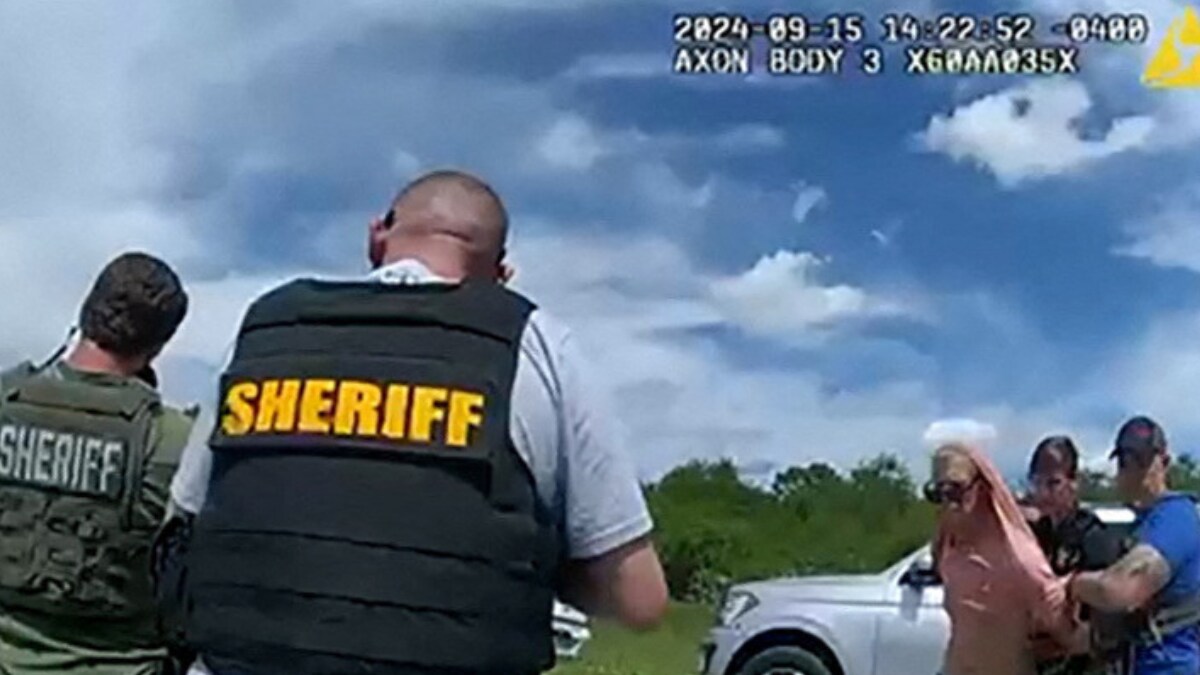The independent commission investigating the deadly mass shooting that occurred in Maine last year said on Tuesday in its final report that local authorities and the gunman’s Army reserve unit missed “several opportunities” that “might have changed the course of events”.
The commission created by Janet Mills, Maine’s Democratic governor, was formed shortly after Army reservist Robert Card shot and killed 18 people in Lewiston last October before taking his own life, in what became the state’s deadliest mass shooting.
The commission was tasked with investigating the facts and circumstances around the shooting, and since November, it has held more than a dozen public meetings, heard countless testimonies, and sifted through hundreds of pages of evidence.
In the final report, released on Tuesday, the commission detailed missed opportunities by authorities to intervene and to seize the gunman’s weapons in the months leading up to the shooting.
“Card is solely responsible for his own conduct. He caused the deaths and injuries inflicted that night” the report reads, but it adds: “Although he might still have committed a mass shooting even if someone had managed to remove Card’s firearms before October 25, 2023, there were several opportunities that, if taken, might have changed the course of events.”
The report reiterated the commission’s previous finding from March, that local law enforcement had sufficient “probable cause to take Card into protective custody under Maine’s yellow flag law” in September 2023, and to confiscate his firearms.
The report also states that the gunman’s Army Reserve Unit failed to undertake “necessary steps to reduce the threat he posed to the public”, including not sharing all the relevant information it had with law enforcement about Card’s threatening behavior.
His commanding officers were aware of the gunman’s “auditory hallucinations, increasingly aggressive behavior, collection of guns, and ominous comments about his intentions” the report states, adding that despite this, officers ignored recommendations from Card’s Army mental health providers to stay engaged with his care, and to make sure that steps were taken to remove weapons from his home.
While Army Reserve leaders’ authority over a reservist is often not as broad as the authority the military has over active-duty service members, they still failed to take advantage of the “available opportunities to exercise their authority” over the shooter, the commission said.
The report praised the “bravery and professionalism” of the law enforcement officers who responded to the shooting, adding that their actions “ultimately resulted in the discovery of Card’s body within 49 hours without further loss of life”.
Maine’s yellow flag law gives power to anyone who regards a gun owner as a threat to report that person to the police, who must then take action.
The commission did not recommend policy or operational changes, as those responsibilities “rest with elected and appointed officials”.
Previous reports have stated that family members had warned police that Card was exhibiting paranoid behavior in the months before the shooting, and a fellow reservist texted an army supervisor a month before the shooting that he believed Card was “going to snap and do a mass shooting” the Associated Press reported in January.
On Tuesday, Daniel Wathen, chair of the commission, told reporters that the investigation and the report, “are meant to bring truth to the victim’s families to those who were injured and to the people of our state, we hope this truth will help the healing process, while simultaneously enabling the public and policy makers to learn from mistakes”.
Earlier this year, Maine lawmakers passed new state gun laws, including background checks on private sales and waiting periods for purchases.

 3 weeks ago
3 weeks ago


















